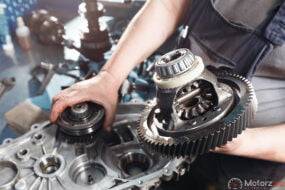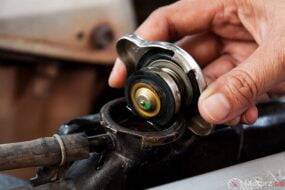Engine Misfire Causes and Solutions For Engine Misfires. can be a frustrating and concerning issue for vehicle owners, as they can lead to a variety of problems such as reduced fuel efficiency, increased emissions, and potential damage to the catalytic converter. Understanding the causes behind engine misfires and implementing effective solutions is crucial for maintaining optimal engine performance. In this article, we will delve into the common reasons behind engine misfires and explore viable solutions to address this issue.
Ignition System Issues:
One of the primary culprits behind engine misfires is problems within the ignition system. Faulty spark plugs, ignition coils, or spark plug wires can disrupt the ignition process, leading to misfires. Regular inspection and timely replacement of these components can prevent such issues.
Fuel System Problems:
Issues within the fuel system, such as clogged fuel injectors or a malfunctioning fuel pump, can result in an improper fuel-air mixture. This imbalance can lead to misfires and negatively impact engine performance. Regular fuel system maintenance, including cleaning or replacing fuel injectors, is essential to prevent these problems.
Air Intake Issues:
A restricted or clogged air intake system can disrupt the air-fuel ratio, causing misfires. Air filters should be inspected and replaced regularly to ensure proper airflow to the engine. Additionally, any leaks in the air intake system must be promptly addressed. Mechanical issues within the engine, such as a damaged piston or a worn-out camshaft, can contribute to misfires. Regular engine maintenance, including oil changes and proper lubrication, can help prevent these mechanical failures.
Sensor Malfunctions:
Modern vehicles rely on various sensors, including the oxygen sensor and the crankshaft position sensor, to monitor and regulate engine performance. Malfunctioning sensors can provide inaccurate data to the engine control unit (ECU), leading to misfires. Regular diagnostic checks and sensor replacements are essential.
Regular Maintenance:
Implementing a regular maintenance schedule is crucial for preventing engine misfires. This includes timely replacement of spark plugs, ignition coils, air filters, and fuel filters. Regular oil changes and proper lubrication are also essential for preventing mechanical issues.
Diagnostic Testing:
When faced with persistent misfires, diagnostic testing is necessary to identify the specific cause. Advanced diagnostic tools can help pinpoint issues within the ignition system, fuel system, or other components. Professional mechanics can conduct thorough tests to diagnose and address the problem accurately.
Ignition System Upgrades:
Upgrading the ignition system with high-quality spark plugs and ignition coils can improve ignition efficiency and reduce the likelihood of misfires. Consultation with automotive experts can help determine the most suitable upgrades for specific vehicle models. Periodic cleaning of the fuel system, including fuel injectors, can prevent clogs and ensure a consistent fuel supply. Fuel system cleaners can be added to the fuel tank as a preventive measure to maintain optimal performance.
Addressing Air Intake Issues:
Regularly inspecting and cleaning the air intake system, including the air filter and ducts, is crucial for preventing misfires. Any leaks or damages should be promptly repaired to maintain proper airflow.In cases where the cause of engine misfires is challenging to identify or resolve, seeking professional assistance is advisable. Experienced mechanics can conduct comprehensive diagnostics and implement effective solutions.
Conclusion:
Engine Misfire can significantly impact vehicle performance and fuel efficiency, but with proactive maintenance and timely interventions, these issues can be mitigated. Regular inspections, diagnostic testing, and adherence to a comprehensive maintenance routine are key to preventing and resolving engine misfires. By understanding the causes behind misfires and implementing appropriate solutions, vehicle owners can ensure a smooth and efficient driving experience while extending the lifespan of their engines.











